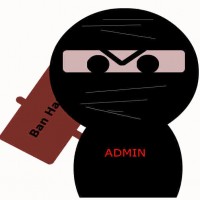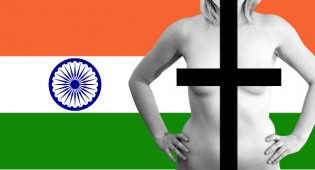India’s High Court Gives Gov’t. 14 Days to Block Internet Porn

NEW DELHI – The Supreme Court of India has put a stop to what conservatives in the country consider administrative dithering by ordering the central government to formulate a plan for blocking foreign internet pornography before the end of July.
The ruling proved unpopular with both India’s government and liberal members of the society at large. At present, viewing online porn is not illegal in the country, although production and distribution were outlawed by the IT Act 2000. Liberal groups fear the court’s ruling will encourage conservative legislators to expand the criminal code “so as to make pornography on computer or mobile a crime, attracting severe punishment to the producers, distributors and viewers of such sites,” according to The Times of India.
For its part, the government’s attempt to crack down on smut earlier this year did not go as well as hoped, according to solicitor-general Indira Jaising. A Department of Telecom order dated June 13 directed internet service providers to block 39 websites, most of which were forums based outside India. Problems arose when the ISPs blocked sites that also served as legitimate hosts for legal, non-pornographic images, files and discussions. Jaising told the Supreme Court the government lacks the technology to determine, efficiently, which sites should be blocked. Blocking websites requires consultation among several government ministries, each of which employs its own lengthy review process. Jaising requested at least four weeks to devise a suitable plan in consultation with the ministries.
Justices did not buy her arguments.
“’No, you can’t say you don’t have the technology,” the spokesman for a three-justice panel replied. “You take up the matter with the concerned ministries and see what can be done. Otherwise, there will be no way we can tackle it.
“You can take the assistance of the petitioners,” the court continued. “They are willing to provide you the technical know-how.”
The petitioners, two conservative attorneys who for several years have pushed for reform of the IT Act, told the court widespread blocking of potentially harmful online material is necessary to preserve the country’s moral fiber and dignity.
“The sexual content that kids are accessing today is far more graphic, violent, brutal, deviant and destructive [than before the internet],” Vijay Panjwani and M.N. Krishnamani argued in their petition. Sexually explicit content “has put entire society in danger [and poses] safety threats to public order in India.
“The petitioner most respectfully submits that most of the offences committed against women/girls/children are fuelled by pornography,” the petition continued. “The worrying issue is the severity and gravity of the images is increasing. It is a matter of serious concern that prepubescent children are being raped.”
The rape allegation stems from a contentious public debate earlier this year following the high-profile, brutal rapes of several women and children — among them a five-year-old girl. In the wake of the crime spree, conservative activists called for the imprisonment of Indo-Canadian porn star and Bollywood sweetheart Sunny Leone on the grounds her popularity has corrupted society’s morals.
India, the most populous democracy in the world, is a constitutional republic governed by a multi-party parliament and a prime minister. As in most other 21st Century secular democracies, the country’s political atmosphere is charged by power struggles between conservative and liberal factions, and many of the most delicate issues split along religious lines. Censorship is one such divisive issue, as it raises the specter of official and religious constraints on free speech,
“The [Supreme Court’s] ruling seems to echo the Taliban/Hindutva belief that rapes and crimes against women are the woman’s fault,” one observer told Domain-b.com.
Another indicated he feared filtering the internet for porn represented a first step toward creating a wider censorship program.
“These kinds of rulings just give another excuse for the Indian government to attempt a China-style cyberwall,” the observer opined.
Comments are closed.





